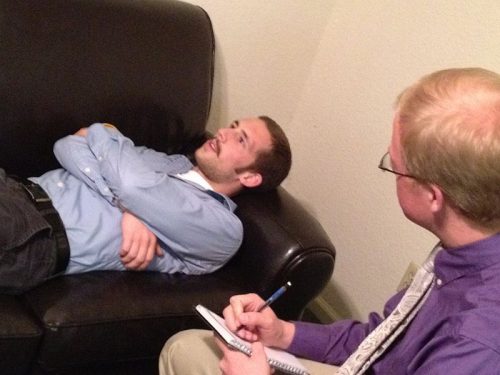Why does therapy work?

When it comes to sharing concerns and feelings, it was found that Jews are more willing and are more confident in their therapist’s capability to help them with their mental health condition. But it has always been a question as to why does therapy works best.
Why Therapeutic Treatments Performs Well With Jews
A recent article titled, “Religion, Ethnicity, and Attitudes Towards Psychotherapy” that was published last April 2012 in the Journal of Religion and Health stated that compared to either non-Jewish or African American people, Jews have higher trust and certainty in the ability of their mental health care provider. Jews cling to their beliefs that mental health therapy can efficiently aid them in psychological dilemmas or issues. More so, Jews were more tolerant of the stigma and are honest in their participation to open up about personal concerns and emotions.
Due to this accepting and understanding attitude, piling in Jews with the entire white population may create studies that compare racial prejudice towards therapy which can be quite misleading. Though there are specific mutual attitudes that make the African American community unsympathetic with regards to therapy clients and their therapists, much can be said for those who belong in mainstream white culture.

A Different Perception
Recent studies emerge showing how the African American population, even when suffering from debilitating mental illness, can still hold negative perceptions and attitudes when it comes to seeking counseling or therapy. Due to this mindset, African Americans who are suffering from severe mental illness will not seek therapy treatment for their psychological issues, no matter how impairing their condition is. “African Americans have a greater distrust of the medical establishment in general, and many believe medical institutions hold racist attitudes,” Monnica Williams, Ph.D. wrote.
Similarly, there are mental health professionals who have argued that Americans of Christian European descent also questions why does therapy work. The thing about “white culture” is that it values the notion of rugged individualism wherein a person must be independent and self-reliant, and not be dependent, weak, and helpless whenever circumstances arise, even if it means getting therapy help for their mental illness. Such kind of individualism materializing is contradictory to seeking professional help for concerns regarding psychological incapacitation. “Many people with mental illness report that private prayer, devotional readings, and religious programming (on TV, the radio, or the internet) can provide solace and comfort, which can enhance the recovery process,” Rob Whitley, Ph.D. points out.
The Jewish View On Psychotherapy
In contrast to the negative outlook of African Americans and non-Jewish white people on therapy, it was found out that Jews are relatively in favor of psychotherapy. Ronald Pies, a Tufts University psychiatrist, has taken the argument further and claimed that due to ancient teachings within the Jewish community and the substantial similarities with cognitive behavioral therapy, Jews are more receptive or tolerant of any stigma that is associated with seeking mental health treatment.
Peter Langman PhD says, “Jews differ from many cultural groups in that they place less value on self-reliance and are less suspicious of taking their problems to professionals.”
Realm Of Understanding Therapy And Mental Health
In the areas of understanding how therapy works, Jewish participants were less likely to identify themselves as primarily responsible for being mentally unstable but were notably more convinced that they are mainly responsible for discovering solutions to address their predicaments as compared to both African Americans and non-Jewish white people. This type of attitude exudes a sterling foundation for effective therapy treatments, downplaying the blame, and teaching people to positively cope and manage situations amidst life’s inevitable highs and lows.

The Conclusion As To Why Therapy Works
The differences outweighing each other are found to be mainly an issue focused on societal norms. Because Jewish culture encourages self-knowledge and introspection, their perception towards life’s uncertainties and mental disabilities are addressed efficiently, placing positive worth on behaviors of seeking therapy if necessary. Though there is still a lot of research to be done, much reiteration has already been made to solidify the fact that Jews are better therapy patients compared to other people.